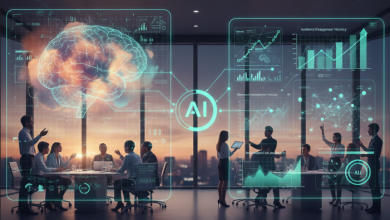
Artificial Intelligence is no longer a futuristic concept in cybersecurity. It’s already embedded in the systems that protect us and our digital infrastructure, scanning for threats, flagging anomalies and triggering automated responses in a fraction of a second. AI is out there making decisions that once demanded human judgment and it’s doing this at scale.
But as adoption accelerates, so too does unease. Can we really trust machines to make decisions that affect national security, business continuity and individual privacy? And more importantly, who is really in control?
The ethics of AI in cybersecurity is fast becoming one of the defining challenges for our industry. It’s forcing business leaders, regulators and technologists to confront difficult questions about fairness, accountability and control in environments where speed and precision are so important.
One of the greatest ethical hurdles in AI is transparency. And the more advanced the model, the harder it becomes to understand how it reaches its conclusions. In cybersecurity, that might mean an automated threat response that locks down a system without any clear explanation. Or a risk score that influences executive decisions but can’t be queried.
These so-called “black box” systems may be powerful tools but their opacity leads to mistrust. Without explainability and a way for humans to audit decisions, there can be no real accountability. In high-stakes environments, that is not just a technical flaw, it is an ethical failure.
Efficiency vs. empathy
AI’s greatest strength lays in its efficiency. It can detect patterns and process data at speeds no human could hope to match. But efficiency has its limits. Algorithms cannot replace human moral considerations, context understanding, or exercise of empathy.
It’s irresponsible for organisations to let machines overrule human judgment, or for people to hand over control entirely. The ethical path forward isn’t about choosing between human and machine. It’s about ensuring the two are working side by side, with the oversight and accountability always resting with people.
Cybersecurity needs this balance. AI can augment analysts, but it should never replace their judgment. Human expertise must remain at the core of every critical decision – —and this is not a power game, but a purpose-driven responsibility that inspires trust.
Securing AI
AI systems themselves are vulnerable to attack. They can be hacked, manipulated, or fed misleading data. If we are relying on them to defend our systems and critical infrastructure, we must be sure that they can’t be turned against us.
This is an ethical obligation. A compromised AI system could cause harm at a scale far larger than traditional cyberattacks. That’s why responsible use of AI in cybersecurity must include rigorous testing, adversarial resilience and continuous retraining to adapt to evolving threats.
AI thrives on data but that doesn’t mean all data should be fair game. Every piece of telemetry, behavioural insight or threat intelligence must be handled with care. Ethical AI in cybersecurity means drawing clear boundaries around how data is collected, stored and used, particularly if it includes personal information.
The principle of “privacy by design” must be foundational. People need to know their data is being used to protect them and not being exploited for unintended purposes. Encryption, anonymisation and governance aligned with global standards like GDPR are essential.
The hidden bias risk
Bias is one of the most difficult inherent risks of AI. Because algorithms learn from human-generated data, they are likely to inherit human prejudices around gender, race, geography or economic status. In cybersecurity, this could mean unfair prioritisation of threats, exclusion of certain user behaviours, or skewed risk assessments.
Ensuring fairness requires constant vigilance. It’s not a one-time fix and needs rigorous testing, ongoing recalibration and a commitment to inclusive design. Ethical AI means actively monitoring to prevent discrimination and reinforce equity.
Ultimately, the ethics of AI in cybersecurity will come down to trust. Organisations simply won’t fully embrace technologies can’t rely upon. Trust isn’t built on efficiency promises or regulatory compliance. It’s earned when systems are transparent, oversight is tangible, data is respected, and fairness is proven.
AI is more than a tool. It’s reshaping how decisions are made and who holds power. The real question isn’t how intelligent these systems can become, it’s how responsibly we choose to use them.
Clearly though, the future of cybersecurity cannot be defined by algorithms alone. It will be shaped by the ethical boundaries we’re willing to set and the human judgment we choose not to replace.



